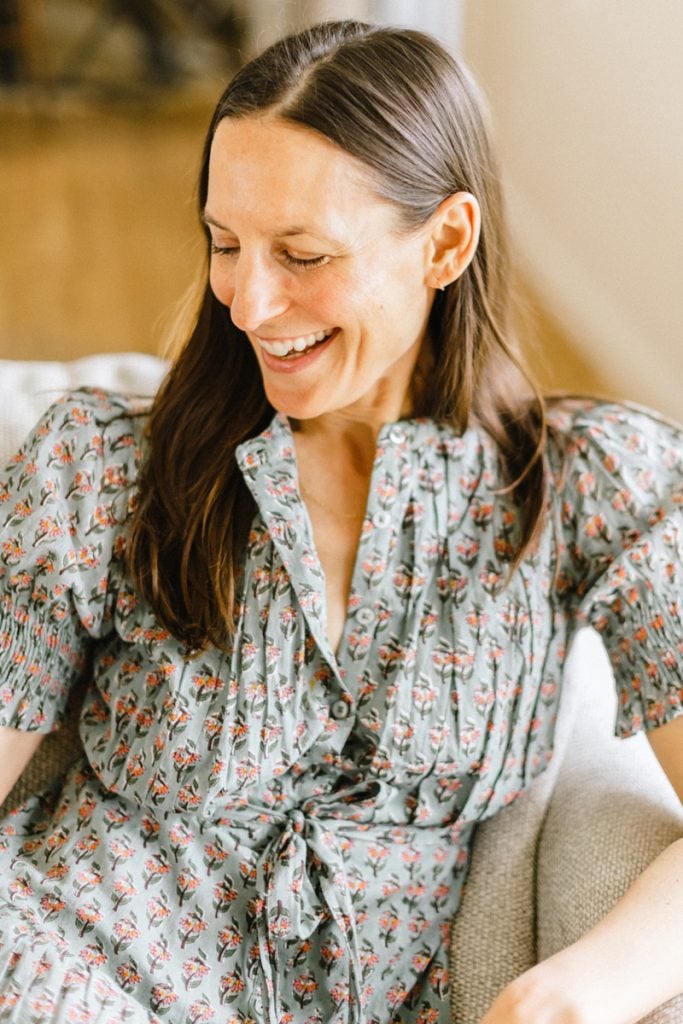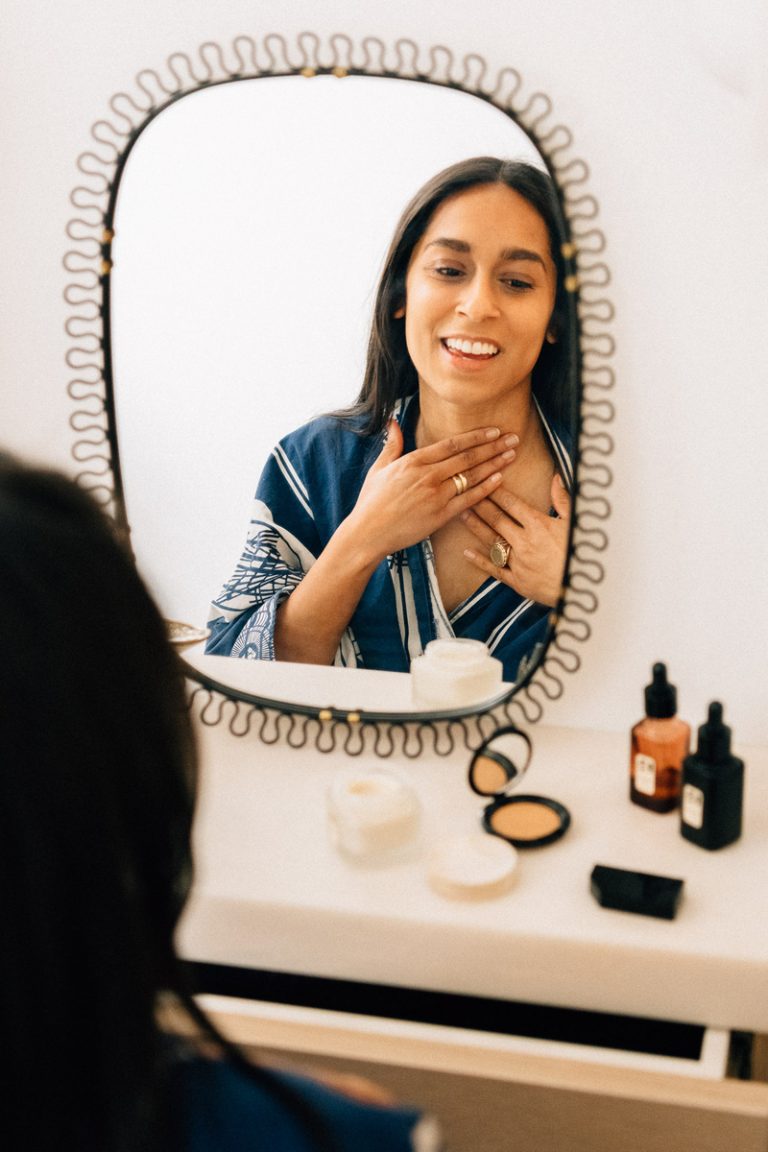
The first time I noticed her was after a night out. I had just come home, giggling from drinking wine with friends. When I looked in the mirror to take off my makeup, there it was: two Fine lines runs across my forehead. I leaned over to take a closer look. Yes, the fine channels of expression were claiming to be there. I left what i was doing and instantly googled the best anti aging skin care products.
At the time, I was in my late 30s, which is when we first started to see a transformation in our skin, says the holistic skincare specialist. Christina Holly. Essential factors such as circulation, nutrient delivery, and tissue repair begin to slow down, as does collagen and elastin production. Fine lines and years of sun damage are starting to rear their heads.
Featured image by Sarah Prince Photography.

Subscription
Sleep well.
Sign up for a free 12-step e-book to your best sleep ever.
Thank you for your registration!
Oops!
It looks like you're already registered or your email address is not valid.
Oops!
Looks like you've already unsubscribed click here to re-subscribe.
If you're like me and about the same age, you'll sigh at this. But really, our mature skin is no reason to drool. On the contrary, it is an invitation to evaluate how much we care about it. As Holley says, it takes a much more thoughtful and effective system to build a healthy one. Hence, it's more than just a quick Google search for "best anti-aging skin care products for your 40s."
Now in my forties, I realize I want to Take care of my skin truly road—which means understanding why they're changing and what they need. That's why I reached out to Holey, who is known to be the best at teaching how leather works and what makes it thrive. Instead of finding a quick fix (which doesn't exist!), I delved into learning what happens to skin after 40 and the best nutrients for maintaining it. Flexible, healthy and glowing.
Skin forties: what happens
In our 20s and early 30s, our skin "system" works pretty well, Holly tells me. The natural processes of repair and production of healthy cells run on a pretty good schedule, at least if you have any major nutritional deficiencies. Basically, "less is more" when it comes to skincare during these years.
Holly says the change in our skin really starts to happen around age 35. This is when we start to see:
- Decreased circulation and nutrient delivery.
- Slowing the rate of cell turnover.
- Decrease in collagen and elastin production.
- Visible expression lines, which correlate with decreased production of ATP, an organic compound the body uses for energy. (As Holly says, “We need ATP and cellular energy to get our muscles moving to produce more collagen.”)
- More signs of accumulated damage from free radicals, UV rays, pollution, chemicals, and internal body problems, all of which lead to an inflammatory cascade and breakdown of skin structure.
These factors require customized and effective care to build and maintain a healthy skin system. "At the 35 to 40 mark, it goes from less to more is more," says Holly of our skincare needs.
Forties Skincare: It's All About Micronutrients
I admit, the above is a lot to swallow. But allow Holly to swoop in with her positive skin wisdom: With essential micronutrients working synergistically, you can replenish skin and build a healthy foundation. "From a skincare perspective, you want to think, How do I compensate for all these inevitable changes? And how do I try to extend the life of these fibroblasts, get the cells to communicate, and make the system run smoothly? "
This, Holly continues, includes the following "priority ingredients." Each micronutrient speaks to the next, creating a skin care regimen that encourages healthy cellular communication - resulting in glowing skin, 40 and beyond.
Retinol (Vitamin A)
Vitamin A does many things, which is why Holly calls it a "no-brainer" when it comes to skin care in your 40s. It stimulates skin fibroblasts and stimulates collagen. It also removes damaged cells so that there is room for new, healthy skin cells. "For damage from UV rays, and damage from past infections, retinol is the best ingredient that can really repair it from the ground up," she adds.
Niacinamide (Vitamin B3)
This powerful ingredient is an antioxidant that aids in the skin's deep energy-demanding actions. Niacinamide, in essence, cleans up any by-product. It also helps reduce inflammation and redness and aids in barrier function. "On a deep level, it's one of those magical ingredients," Holley says.
Vitamin C
Another "no brainer," says Holly. "You can't produce collagen if you don't have vitamin C," she adds. Plus, since we don't make vitamin C ourselves, we need it from outside sources—and it's required for many different processes in the body, including anything immune-related. Vitamin C also increases sun protection. [Note: Be sure to test vitamin C as certain varieties may be too strong for certain skin]
"In order to have healthy skin, you need to have proper cellular communication." - Christina Holly
Essential fatty acids
As we age, our skin produces less oil. For this reason, Holley says it's important to supplement with essential fatty acids. This helps seal and protect the skin and nourishes it with ceramides, which are important for replenishing lipids and cholesterol and supporting moisture balance.
Source link



0 Comments